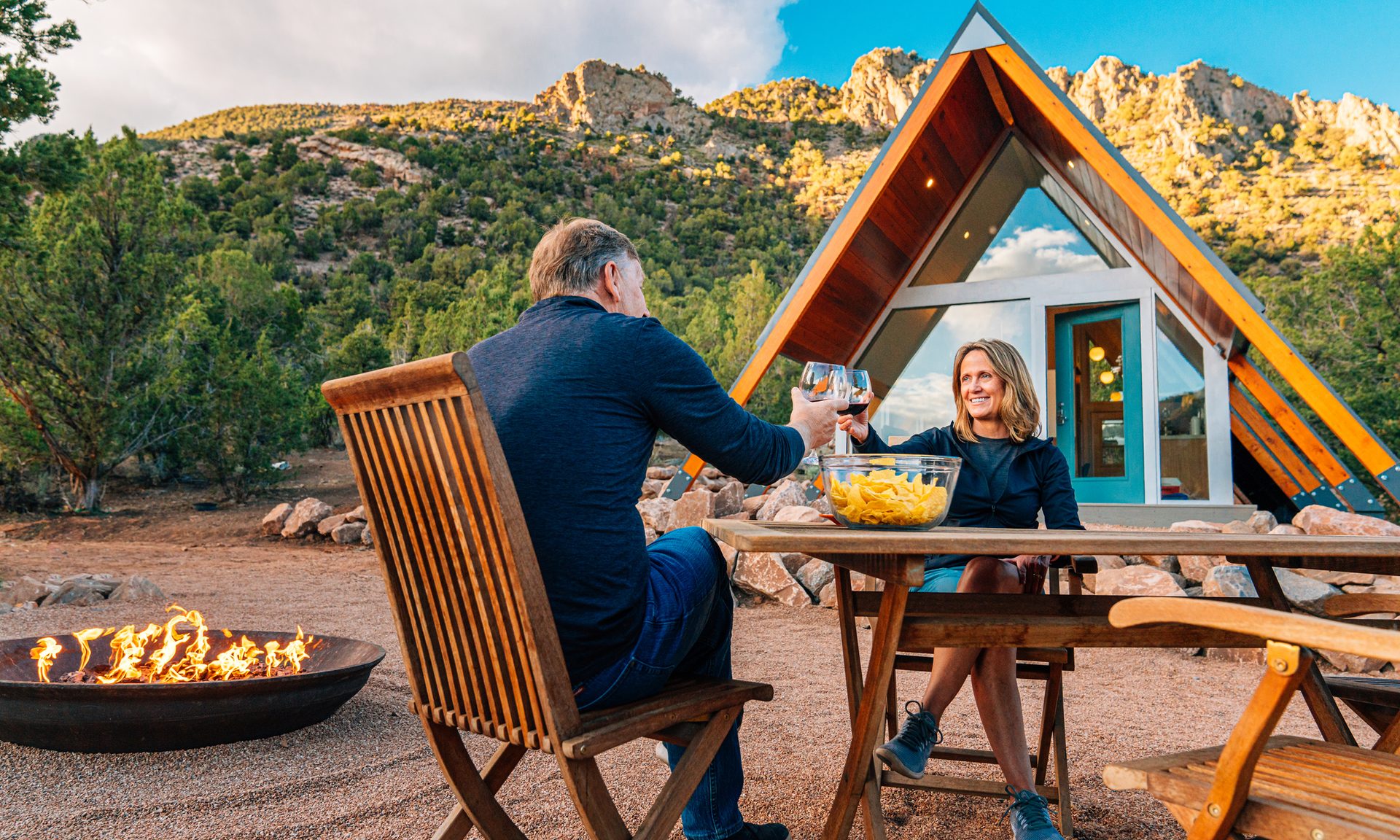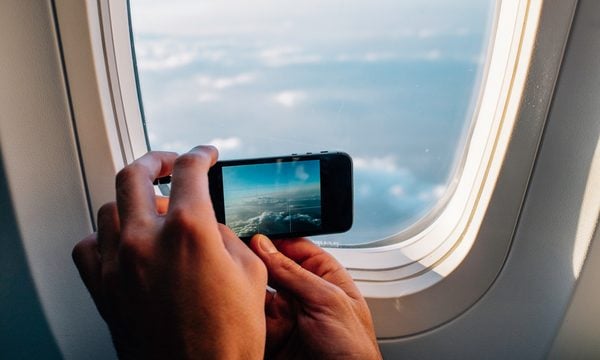Are Airbnbs More Cost-Effective Than Hotels?
Airbnbs are usually cheaper than hotels for longer stays and large groups, but they don’t offer the same services.

Many or all of the products on this page are from partners who compensate us when you click to or take an action on their website, but this does not influence our evaluations or ratings. Our opinions are our own.
Remember the days when one of the best money-saving travel tips was booking an Airbnb versus a hotel? Not only were nightly rates almost always far cheaper, but the Airbnbs and hosts themselves often shaped up to be the most memorable aspects of a trip.
These days, staying at an Airbnb rarely involves big savings or friendships with the hosts. For better or for worse, features like self-check-in make it so hosts and guests never even meet. Meanwhile, many listings are not managed by owners, but by corporate property management behemoths — without the convenience of on-site, full-time staff.
And the cost? A June 2022 NerdWallet analysis looked at 1,000 U.S. Airbnb reservations for 2022 or 2023. Although there’s no way to compare the costs directly since every Airbnb is different, some key indicators provide clues as to when Airbnbs are better or worse than a hotel.
In some cases, Airbnb rentals are still a good deal compared to hotels. Other times, they’re far from it.

» Learn more: The complete NerdWallet guide to Airbnb
Length of the trip
For short stays, Airbnbs are rarely a good deal for two reasons: discounts and cleaning fees.
Savings get bigger with trip length: The nightly rate for the average seven-night Airbnb stay was 32% cheaper than a one-night stay, according to NerdWallet’s analysis.
- One-night stay: $314 median nightly price.
- Seven-night stay: $213 median nightly price (32% cheaper per night versus staying one night).
Why are longer stays cheaper? One reason is multiday discounts. Hosts offer these incentives because they’d prefer having fewer bookings to manage and ensure occupancy.
Another reason is cleaning fees. While not all listings have them, the median cleaning fee is $75, according to NerdWallet’s analysis. Since it’s a one-time fee, the cost is reduced by longer stays. A $75 cleaning fee stings more on a one-night stay versus a three-week stay, where it would amount to only about $3.50 per day. Since hotels typically don’t have cleaning fees, travelers staying a night or two might be better off with a hotel if Airbnb cleaning fees are steep.
Get the 'Cheat Codes' to Cheaper Travel
Unlocking the secret to saving a ton on travel is easier than you think. 📤 Our free newsletter shows you how in 5 min. or less.

Size of group
For solo travelers and couples, Airbnbs are typically more expensive (though NerdWallet’s study only looked at “entire place” properties, so people sharing a room or home might still save).
NerdWallet compared the price per head for Airbnbs with a max capacity of two adults against a hotel room in the same city. It also compared the cost of an Airbnb with a max capacity of six people against the cost to book three hotel rooms (assuming two adults per room).
The average Airbnb for six was 33% cheaper than booking three hotel rooms. But the average hotel was 29% cheaper than booking an Airbnb for two.
Here’s how median costs broke down, per person:
- Small Airbnb (fits two adults): $125.
- Large Airbnb (fits six adults): $60.
- Hotel room (fits two adults): $89.
Other factors to consider
Of course, every traveler’s situation is unique, and other costs go into a trip beyond just sticker price. Ask yourself about:
Transportation: Does the hotel charge for parking? Is there a free airport shuttle? Is the hotel downtown and walkable, whereas your Airbnb might necessitate a rental car?
Staff availability: For Airbnbs, you might never meet the host or interact with any sort of staff. If you prefer to speak to a human (or simply need personal assistance for anything from getting directions to helping clean a mess), a hotel might have better offerings.
Then again, even hotels are still understaffed. The American Hotel & Lodging Association forecasts that hotels will end 2022 with 1.97 million employees, which is 84% of pre-pandemic levels, and a May 2022 AHLA survey found that 97% of hotels indicate that they are experiencing a staffing shortage.
Food: Can you skip restaurants (and subsequently take part in the growing trend of grocery store tourism) by cooking in the Airbnb kitchen? Is the free hotel breakfast more convenient?
Other amenities: Does your Airbnb include laundry? Are daily activities included with your hotel, making it so you can skip paying for other entertainment if you’ll spend all day at the pool?
For remote workers, what about office space? A Deloitte spring 2022 survey of 4,200 Americans asked what factors go into their lodging decisions. “Space to work” saw a 19% increase in 2022 versus 2021 — and an Airbnb with a separate office or backyard might be a more enjoyable workspace than being cooped up in a small hotel room.
Additional fees and ways to pay: Will you owe resort fees? Airbnb doesn’t have a loyalty program, but can you stay at the hotel for free on points?
Given the variability, it’s impossible to proclaim that Airbnbs are better or worse than hotels. And given ongoing reduction in hotel services like housekeeping and room service, the sometimes lackluster feeling that increasingly surrounds Airbnb is a tough comparison to make as hotel services disappear, too.
But if you’re booking travel in 2025 under the assumption that Airbnbs are always the best deal, reconsider your strategy.
Article sources
NerdWallet writers are subject matter authorities who use primary,
trustworthy sources to inform their work, including peer-reviewed
studies, government websites, academic research and interviews with
industry experts. All content is fact-checked for accuracy, timeliness
and relevance. You can learn more about NerdWallet's high
standards for journalism by reading our
editorial guidelines.
Limited Time Only: Earn $1,000 Toward Travel!
Capital One Venture Rewards Credit Card 
Travel

For a limited time, the
Capital One Venture Rewards Credit Card is offering new cardholders an especially rich bonus: Enjoy $250 to use on Capital One Travel in your first cardholder year, plus earn 75,000 bonus miles once you spend $4,000 on purchases within the first 3 months from account opening - that’s equal to $1,000 in travel!
More like this
Related articles







